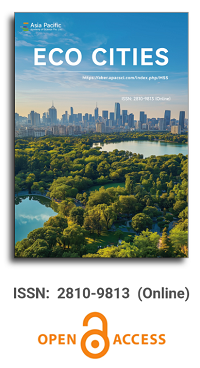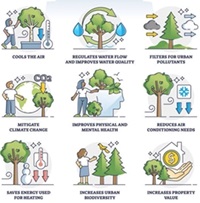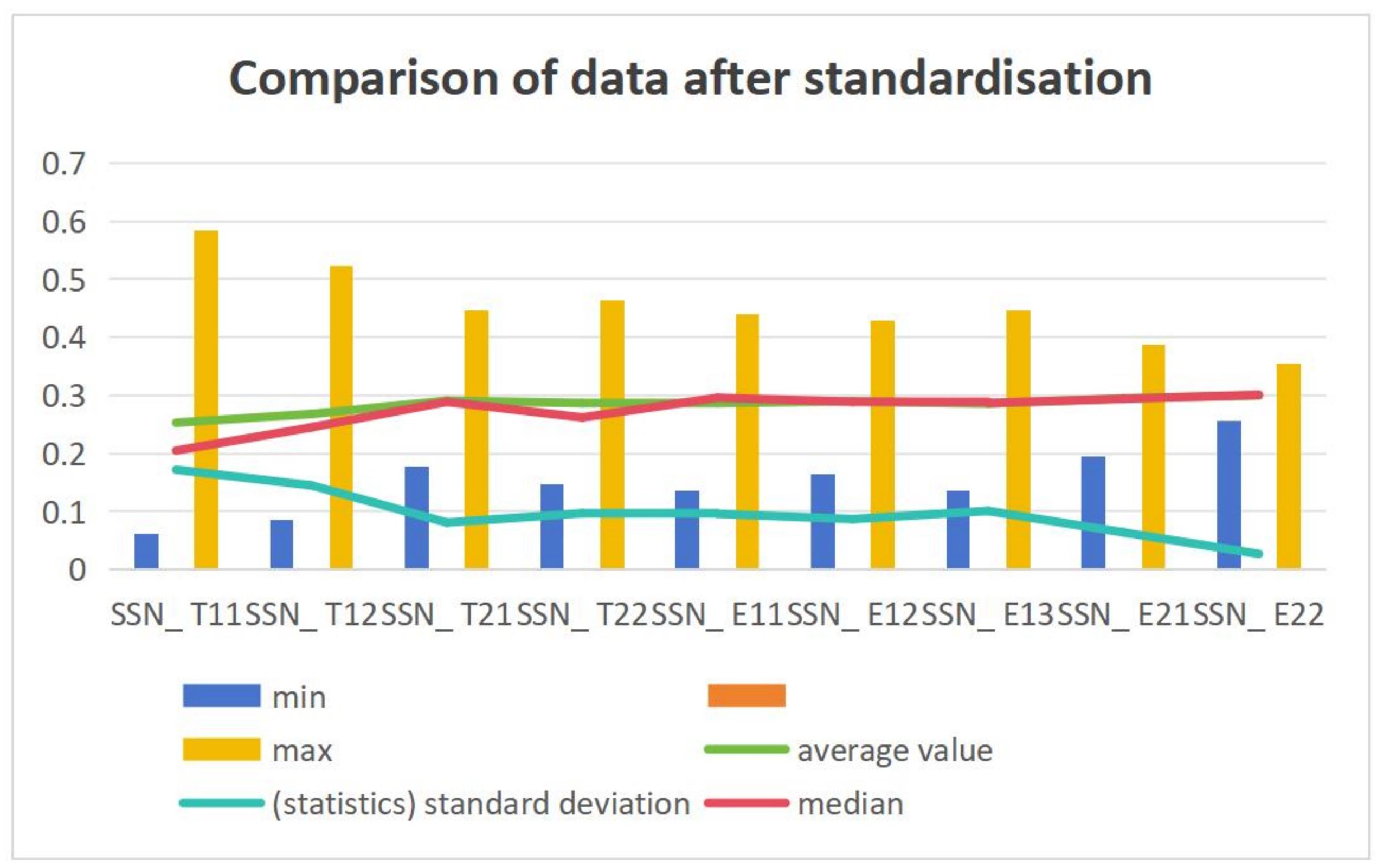


Digital economy empowers urban green transformation for sustainable development
Vol 5, Issue 1, 2024
Download PDF
Abstract
With the acceleration of urbanization and the intensification of environmental issues, China is actively transitioning to a digital green economy development model, covering the application of digital technologies, sustainable economies, environmental protection, green infrastructure and transportation, digital management, and social inclusion. The model aims to improve urban efficiency through digital innovation, reduce resource waste, achieve a balance between economic growth and environmental protection, and improve residents’ quality of life. Despite some progress, challenges remain, such as the digital divide, financial pressures, and inadequate environmental regulation. This paper selects the data from 2008 to 2022 for research and uses Eviews software to conduct multiple linear regression analysis and testing. It aims to explore the application of digital technology in urban management, promote the development of the green economy, and analyze and improve the problems in the digital green economy so as to promote sustainable urban development.
Keywords
References
- Cao K, Long S. Space and temporal differentiation and spatial spillover effect analysis of the green development efficiency of urban tourism in China (Chinese). Resources and Environment in the Yangtze Basin. 2024; 33(1): 1-13.
- Li L. Research on the Influence of Digital Economy Development on the Green Transformation of Manufacturing Industry (Chinese) [PhD thesis]. Jilin University; 2023.
- Yin S, Zhao Y. Digital green value co-creation behavior, digital green network embedding and digital green innovation performance: Moderating effects of digital green network fragmentation. Humanities and Social Sciences Communications. 2024; 11(1). doi: 10.1057/s41599-024-02691-5
- Wang X, Li J. Is the digital economy effective in promoting energy conservation and carbon emission reduction (Chinese). China Population, Resources and Environment. 2022; 32(11): 83-95.
- Zhang N, Yin J, Zhang N, et al. Artificial intelligence-driven photovoltaic building materials industry: Greenization and digitization innovation conversion of photovoltaic technology based on a novel interval fuzzy field theory decision-making model. Journal of Intelligent & Fuzzy Systems. 2024; 46(3): 6411-6437. doi: 10.3233/jifs-234838
- Zou Y, Han B. Research on China’s economic green development index in the new era (Chinese). Administration Reform. 2022; 9: 31-43. doi: 10.14150/j.cnki.1674-7453.2022.09.009
- Yin S, Gao Z, Mahmood T. Artificial intelligence-driven bioenergy system: Digital green innovation partner selection of bioenergy enterprises based on interval fuzzy field model. Kybernetes. 2023. doi: 10.1108/k-08-2023-1495
- Zhao X, Wei X. Research on the effect and mechanism of regional green development in digital economy—Based on the intermediary effect of technological innovation and industrial upgrading (Chinese). Journal of Southwest University (Natural Science Edition). 2023; 45(8): 21-30. doi: 10.13718/j.cnki.xdzk.2023.08.003
- Yao Y, Zhang Y, Xie Y. Evaluation system and empirical study of green development in urban and rural construction (Chinese). Intelligent City. 2023; 9(9): 64-67. doi: 10.19301/j.cnki.zncs.2023.09.019
- Huang J, Xu Z. Spatial effect and transmission mechanism of technological innovation on green development: Based on the empirical evidence of the Yangtze River Delta urban agglomeration (Chinese). Journal of Industrial Technology and Economy. 2024; 43(2): 98-105.
- Yin S, Liu L, Mahmood T. New trends in sustainable development for Industry 5.0: Digital green innovation economy. Green and Low-Carbon Economy. 2023. doi: 10.47852/bonviewglce32021584
- Lv W. Create institutional mechanisms and policy environment conducive to green development (Chinese). Economic Review Journal. 2016; 2: 4-8. doi: 10.16528/j.cnki.22-1054/f.201602004
- Lv X, Wang Y, Liu L, et al. Digital green innovation economy for Industry 5.0. Sustainable Economies. 2024; 2(1): 8. doi: 10.62617/se.v2i1.8
- Li J, Xu B. “Curse” or “Gospel”: How does resource abundance affect China’s green economic growth (Chinese). Economic Research Journal. 2018; 53(9): 151-167.
- Bob H, Mary L. 1991-1992 Green Index: Evaluation of Environmental Quality in US States (Chinese). Beijing Normal University Press; 2011.
- Zhou W. Does regional market integration improve the efficiency of urban green development: Empirical analysis based on the unified large market in the Yangtze River Delta (Chinese). Lanzhou Academic Journal. 2024; 3: 28-45.
- Zhu J, Wang T, Du Y. Study on the efficiency and influencing factors of green development in Shandong Province (Chinese). Territory & Natural Resources Study. 2024; 2: 37-41. doi: 10.16202/j.cnki.tnrs.2024.02.008
- Zhang W, Deng L, Yin C. Evaluation of green economic efficiency and analysis of influencing factors in major node cities of “Belt and Road” (Chinese). Inquiry into Economic Issues. 2017; 11: 84-90.
- Wang X, Wei Q, Yang X. Dynamic evaluation of urban green economy efficiency and influencing factors—Based on the data analysis of 285 cities at or above the prefecture level (Chinese). Ecological Economy. 2017; 33(2): 68-71.
- Wang Q, Hu A, Xin Y. Can the digital economy promote green development: Empirical test based on energy saving, emission reduction and efficiency enhancement mechanism (Chinese). Journal of Business Economics. 2022; 11: 44-59. doi: 10.14134/j.cnki.cn33-1336/f.2022.11.004
- Rugman AM, Verbeke A. Corporate strategies and environmental regulations: An organizing framework. Strategic Management Journal. 1998; 19(4): 25-36. doi: 10.1002/(SICI)1097-0266(199804)19:4<363::AID-SMJ974>3.0.CO;2-H
- Wang D, Zhu B, Tao Z. The coupled coordination study of green development and common prosperity (Chinese). Journal of Nanning Normal University (Philosophy and Social Sciences Edition). 2024; 45(1): 63-80. doi: 10.16601/j.cnki.issn2096-7349.2024.01.006
- Wu L, Chen W, Lin L, Feng Q. Research on the influence of innovation and green technology innovation on enterprise total factor productivity (Chinese). Journal of Applied Statistics and Management. 2021; 40(2): 319-333. doi: 10.13860/j.cnki.sltj.20200818-007
- Zeng X. Regional environmental efficiency and its impact factors in China (Chinese). Economic Theory and Business Management. 2011; 10: 103-110.
- Huang J, Lu H, Wang L. The mechanism of financial development affecting regional green development is based on ecological efficiency and spatial measurement (Chinese). Geographical Research. 2014; 33(3): 532-545.
- Li S, Zhou T, Fan L. Urban green development and influencing factors of the Yangtze River Economic Belt (Chinese). Statistics & Decision. 2019; 35(15): 121-125. doi: 10.13546/j.cnki.tjyjc.2019.15.028
- Yu Y, Yin S, Zhang A. Clean energy-based rural low carbon transformation considering the supply and demand of new energy under government participation: A three-participators game model. Energy Reports. 2022; 8: 12011-12025. doi: 10.1016/j.egyr.2022.09.037
- Tapscott D. The Digital Economy: Promise and Peril in the Age of Networked Intelligence. Mc Graw-Hill; 1996.
- Ding Z. Reform of traditional industries driven by information consumption: Basic connotation and internal mechanism (Chinese). Economist. 2020; 3: 87-94. doi: 10.16158/j.cnki.51-1312/f.2020.03.009
- Dahlman C, Mealy S, Wermelinger M. Harnessing the digital economy for developing countries. OECD Development Centre Working Papers. 2016; 3: 11-15.
- Chen X, Li Y, Song L, Wang Y. The theoretical system and research prospect of digital economy (Chinese). Journal of Management World. 2022; 38(2): 208-224+13-16. doi: 10.19744/j.cnki.11-1235/f.2022.0020
- Li X. The endogenous impetus for the development of digital economy in China (Chinese). People’s Tribune. 2023; 17: 26-30.
- Zhang K, Yang D, Zhao H, et al. Digital economy is a new driving force to promote regional economic development (Chinese). Regional Economic Review. 2022; 3: 8-19. doi: 10.14017/j.cnki.2095-5766.2022.0061
- Li W. Digital economy enables high-quality development of rural tourism: Research on dynamic mechanism and path (Chinese). Foreign Economic Relations & Trade. 2024; 2: 78-81+157.
- Che S, Wang Q. Change and path selection of the high-quality development of cultural industry in the era of digital economy (Chinese). Academic Exchange. 2022; 1: 114-125+192.
- Zhou Y. Digital economy promotes common prosperity: Advantage of development, risks and challenges, and practical paths (Chinese). Journal of Hubei University of Economics (Humanities and Social Sciences). 2024; 21(3): 10-13.
- Xie P, He Z. Structure development, causes analysis and legal response of market risks of digital economy (Chinese). Journal of Yunnan University for Nationalities (Philosophy and Social Sciences Edition). 2024; 41(2): 108-114. doi: 10.13727/j.cnki.53-1191/c.20240305.007
- Tang J. Risk performance and rule of law strategy in the sustainable development of digital economy (Chinese). The Journal of Humanities. 2024; 2: 121-130. doi: 10.15895/j.cnki.rwzz.2024.02.003
- Yin S, Zhao Y. An agent-based evolutionary system model of the transformation from building material industry (BMI) to green intelligent BMI under supply chain management. Humanities and Social Sciences Communications. 2024; 11(1). doi: 10.1057/s41599-024-02988-5
- Yin S, Zhao Z. Energy development in rural China toward a clean energy system: Utilization status, co-benefit mechanism, and countermeasures. Frontiers in Energy Research. 2023; 11. doi: 10.3389/fenrg.2023.1283407
Supporting Agencies
Copyright (c) 2024 Yiran Wang, Xiaolu Lv, Shi Yin
License URL: https://creativecommons.org/licenses/by/4.0/

This site is licensed under a Creative Commons Attribution 4.0 International License (CC BY 4.0).

Chinese Academy of Sciences, China
Indexing & Archiving
Asia Pacific Academy of Science Pte. Ltd. (APACSCI) specializes in international journal publishing. APACSCI adopts the open access publishing model and provides an important communication bridge for academic groups whose interest fields include engineering, technology, medicine, computer, mathematics, agriculture and forestry, and environment.



.jpg)

.jpg)



